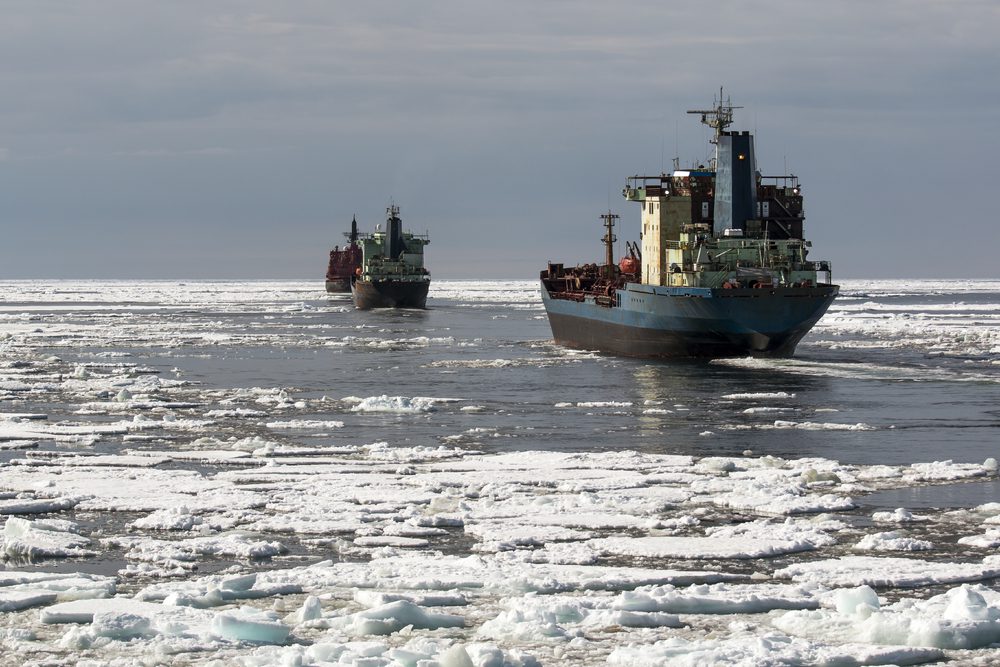Arctic Sea Ice Shrank to Record Lows in July
Updated: February 5, 2026 (Originally published August 7, 2020) By Laura Millan Lombrana (Bloomberg) –Ice covering the Arctic Ocean reached the lowest level since at least 1979 for July as...

A Russian icebreaker escorts ships on the Northern Sea Route, July 14 2016. Photo credit: knyazev vasily / Shutterstock
![]() By Alister Doyle, Environment Correspondent OSLO, Jan 10 (Reuters) – The oceans are warming faster than previously estimated, setting a new temperature record in 2018 in a trend that is damaging marine life, scientists said on Thursday.
By Alister Doyle, Environment Correspondent OSLO, Jan 10 (Reuters) – The oceans are warming faster than previously estimated, setting a new temperature record in 2018 in a trend that is damaging marine life, scientists said on Thursday.
New measurements, aided by an international network of 3,900 floats deployed in the oceans since 2000, showed more warming since 1971 than calculated by the latest U.N. assessment of climate change in 2013, they said.
And “observational records of ocean heat content show that ocean warming is accelerating,” the authors in China and the United States wrote in the journal Science of ocean waters down to 2,000 meters (6,600 ft).
Man-made greenhouse gas emissions are warming the atmosphere, according to the overwhelming majority of climate scientists, and a large part of the heat gets absorbed by the oceans. That in turn is forcing fish to flee to cooler waters.
“Global warming is here, and has major consequences already. There is no doubt, none!” the authors wrote in a statement.
Almost 200 nations plan to phase out fossil fuels this century under the 2015 Paris climate agreement to limit warming. U.S. President Donald Trump, who wants to promote U.S. fossil fuels, plans to pull out of the pact in 2020.
Data due for publication next week will show “2018 was the warmest year on record for the global ocean, surpassing 2017,” said lead author Lijing Cheng, of the Institute of Atmospheric Physics at the Chinese Academy of Sciences.
He told Reuters that records for ocean warming had been broken almost yearly since 2000.
Overall, temperatures in the ocean down to 2,000 meters rose about 0.1 degree Celsius (0.18F) from 1971-2010, he said. The 2013 U.N. assessment estimated slower rates of heat uptake but did not give a single comparable number.
A separate study on Monday, by the European Union’s Copernicus Climate Change Service, said 2018 was the fourth warmest year for global surface temperatures in records dating back to the 19th century.
Ocean temperatures are less influenced by year-to-year variations in the weather. It can take more than 1,000 years for deep ocean temperatures to adjust to changes at the surface.
“The deep ocean reflects the climate of the deep and uncertain past,” Kevin Trenberth, of the U.S. National Center for Atmospheric Research and a co-author of Thursday’s study, told Reuters.
Among effects, extra warmth can reduce oxygen in the oceans and damages coral reefs that are nurseries for fish, the scientists said. Warmer seas release more moisture that can stoke more powerful storms.
Warmer ocean water also raises sea levels by melting ice, including around the edges of Antarctica and Greenland.
(Reporting By Alister Doyle; editing by John Stonestreet)
(c) Copyright Thomson Reuters 2019.
This article contains reporting from Reuters, published under license.

Sign up for gCaptain’s newsletter and never miss an update

Subscribe to gCaptain Daily and stay informed with the latest global maritime and offshore news
Essential news coupled with the finest maritime content sourced from across the globe.
Sign Up